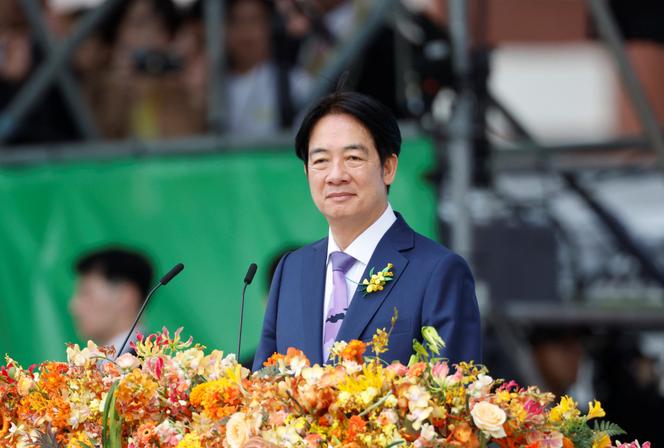


Taiwan's Lai Ching-te was sworn in on Monday, May 20, as president of the democratic island in the face of growing Chinese military pressure and a hostile parliament.
Lai succeeded Tsai Ing-wen in a ceremony closely watched by China, which claims the island as part of its territory, and the United States, its key partner and weapons provider. Lai, whose staunch defense of Taiwan's sovereignty has enraged Beijing, is expected to boost defense spending and strengthen ties with Washington during his four-year term in a bid to deter China from seizing the island.
Lai accepted congratulations from fellow politicians and delegations from the 12 nations that maintain official diplomatic relations with Taiwan, as well as politicians from the US, Japan and various European states. US Secretary of State Antony Blinken congratulated Taiwan's newly inaugurated president late Sunday, saying he looked forward to Washington and Taipei deepening ties and maintaining "peace and stability across the Taiwan Strait."
Lai, also known by his English name William, has vowed to continue his predecessor’s push to to maintain stability between the sides while beefing up Taiwan’s security through imports of advanced fighters and other technology from close partner the US, the expansion of the defense industry with the manufacture of submarines and aircraft, and the reinforcing of regional partnerships with Taiwan’s unofficial allies such as the US, Japan, South Korea and the Philippines.
He takes over from Tsai Ing-wen, who led Taiwan through eight years of economic and social development despite the COVID-19 pandemic and China’s escalating military threats. Lai, 64, is seen as inheriting her progressive policies, including universal health care, backing for higher education and support for minority groups, including making Taiwan the first place in Asia to recognize same-sex marriages.
Lai, who was vice president during Tsai’s second term, came across as more of a firebrand earlier in his career. In 2017, he described himself as a “pragmatic worker for Taiwan’s independence,” drawing Beijing’s rebuke. He has since softened his stance and now supports maintaining the status quo across the Taiwan Strait and the possibility of talks with Beijing.
Beijing claims Taiwan as its own territory and has been upping its threats to annex it by force if necessary.
On Monday, China's Ministry of Commerce announced sanctions against Boeing and two other defense companies Monday for arms sales to Taiwan. The move is the latest in a series of sanctions Beijing has announced in recent years against defense companies for weapons sales to Taiwan.
China's Ministry of Commerce placed Boeing’s Defense, Space & Security unit, General Atomics Aeronautical Systems, and General Dynamics Land Systems, on what is called an “unreliable entities” list, forbidding their further investment in China, in addition to travel bans on senior management for the companies.
Chinese social media platform Weibo also blocked a hashtag featuring the name of Taiwan's new President Lai Ching-te, a notice on the website showed Monday. "According to relevant laws, regulations, and policies, the content of this topic has not been displayed," a search for the hashtag #LaiChing-te on the X-like Weibo showed around 10.40 am.
